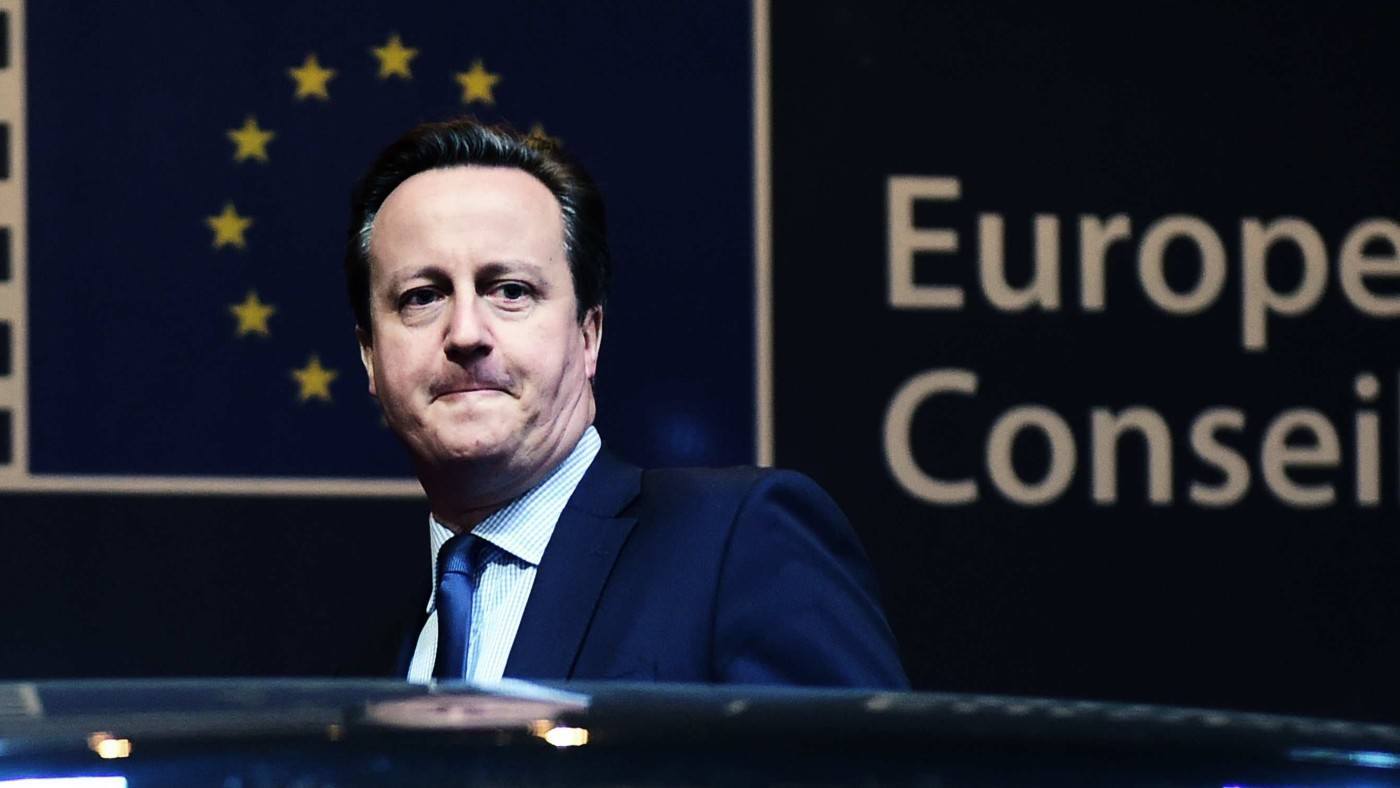It took some hard negotiations, a shedload of paperwork and repeated deadline extensions, but the moment is finally here. No, not Brexit, but the publication of David Cameron’s memoir, For the Record, which hits the shelves this Thursday.
The media focus has understandably been on Cameron’s decision to hold the Brexit referendum. But the narrative is already starting to sound like a broken record. It goes something like this: holding a referendum was an act of hubris on Cameron’s part – an unnecessary, short-sighted tactic to placate a Conservative Party frightened of UKIP, a case of party before country that spectacularly backfired. So, the logic goes, the current mess is all Cameron’s fault.
This is a comfortable argument to wear whether you think Brexit is a bewildering disaster or a glorious opportunity being undermined by politicians who never believed in it, or who failed to prepare for it properly.
Yet it is also blinkered and, in the main, wrong.
The most important quality in a democracy is trust. We hand over control to our politicians on the basis that they will do what they said they would in order to get our vote in the first place. But for years, politicians had over-promised and under-delivered on a range of issues – perhaps none more than Europe and its handmaiden, immigration.
Some commentators will tell you that the European Question only gained traction with the public in the last few years – namely after the referendum was called. But the idea of a referendum on Europe had actually been part of our political conversation for decades. Tony Blair was first elected in 1983 on a Labour manifesto promising an exit from Europe. Blair promised a referendum on the EU constitution in 2005, only to renege on it once power had been re-secured (and the constitution transmuted into the Lisbon Treaty). Even Nick Clegg called for ‘a real referendum’ on Europe (ie In/Out) in 2008, with Caroline Lucas following suit in 2011.
That it was offered but never came helped fuel the rise of UKIP, who came second in the 2009 European elections and first in 2014 on an explicitly ‘Leave’ ticket. So Cameron’s referendum finally delivered on what the public had been promised – by parties of all stripes – for years.
Many have dismissed this as a case of party management gone wrong, but politics is about power, and parties are supposed to respond to the mood of the public in order to obtain it. In 2015, an offer of a referendum was part of the Conservative programme the public assented to. At that stage, to not carry out such a flagship promise would have further degraded the public’s trust in politics.
Parliament agreed – voting in in favour of a referendum by 544 – 53. Polls showed broad consent amongst the public too, with 66% of people saying they thought ‘it was right for Cameron to hold a referendum’, compared to 24% who didn’t.
When that referendum came, a majority voted to change the status quo. Taken in the round, all this does suggest there was more of a mandate behind the decision than simply the hubristic whim of one man.
It also suggests a growing pressure for people to have a say on the issue. If it wasn’t Cameron who granted a referendum, it would have been the next Conservative leader, pushed into a corner by an unchecked UKIP.
This is not to say that Cameron is absolved of responsibility for the referendum, or to suggest that referendums should play a greater part in our politics. Rather it is a plea to recognise that the contexts of political decisions matter and can’t be retrospectively wished away.
So, if you’re looking for someone to blame for the current chaos – whatever your political persuasion or position on Brexit – there are plenty of candidates, plenty of events, plenty of decisions to choose from. Why limit yourself to one man?
CapX depends on the generosity of its readers. If you value what we do, please consider making a donation.


